Are you a business in need of financial cashflow assistance? If so, then you may be considering taking out business loans to cover costs and grow your enterprise. But how do you go about choosing the best UK business loan provider for your needs?
We have gathered some of the top contenders in the market who offer competitive rates and favourable terms – read on to learn more about who they are and their lending packages!
Featured pro tools
Best business loan providers UK
| Loan provider | Minimum loan | Maximum loan | Maximum term |
|---|---|---|---|
| ABC Finance | £500 | £1,000,000 | 5 years |
| ArchOver | £100,000 | £5,000,000 | 3 years |
| Aspire Business Loans | £5,000 | £300,000 | 5 years |
| Atom Bank | £100,000 | £5,000,000 | 6 years |
| Bank of Scotland | £1,000 | £1,000,000 | 25 years |
| Barclays | £1,000 | £100,000 | 10 years |
| Bibby Financial Services | n/a | n/a | 2 years |
| Bluestar Leasing | £5,000 | n/a | 5 years |
| Braemar Finance | n/a | n/a | n/a |
| Capify | £5,000 | £500,000 | 12 months |
| Catalyst Property Finance | £25,000 | £1,000,000 | 12 months |
| ClearFunder | £10,000 | £100,000 | 12 months |
| Close Brothers | n/a | n/a | n/a |
| Clydesdale Bank | £25,001 | £10,000,000 | 15 years |
| Co-operative Bank | £1,000 | £250,000 | 15 years |
| CubeFunder | £5,000 | £100,000 | n/a |
| Fleximize | £5,000 | £500,000 | 4 years |
| Folk2Folk | £50,000 | n/a | 5 years |
| Funding Circle | £2,000 | £250,000 | 6 years |
| Hope Capital | £50,000 | £5,000,000 | n/a |
| HSBC | £1,000 | £25,000 | 20 years |
| Huddle Capital | n/a | n/a | 12 months |
| Independent Growth Finance | n/a | n/a | n/a |
| Iwoca | £50,001 | £250,000 | 3 years |
| Kriya | £5,000 | £250,000 | 3 years |
| LendingCrowd | £5,000 | £500,000 | 5 years |
| Liberis | £50,001 | £150,000 | 2 years |
| Lloyds Bank | £1,000 | £1,000,000 | 25 years |
| Merchant Money | £5,000 | £500,000 | 2 years |
| Metro Bank | £2,000 | £25,000,000 | 30 years |
| NatWest | £1,000 | £10,000,000 | 25 years |
| Novuna | £10,000 | £500,000 | 5 years |
| Nucleus Commercial Finance | £10,000 | £250,000 | 6 years |
| PFC Finance | £5,000 | £1,000,000 | 5 years |
| Rangewell | n/a | n/a | 5 years |
| Rebuildingsociety.com | £25,000 | £250,000 | 5 years |
| Royal Bank of Scotland | £1,000 | £10,000,000 | 25 years |
| Santander | £2,000 | £25,000 | 5 years |
| Satellite Finance | £3,000 | £1,000,000 | 10 years |
| Starling Bank | £5,000 | £20,000 | 5 months |
| Start Up Loans | n/a | £25,000 | 5 years |
| ThinCats | £1,000,000 | £15,000,000 | n/a |
| White Oak | £2,000 | £500,000 | 5 years |
ABC Finance
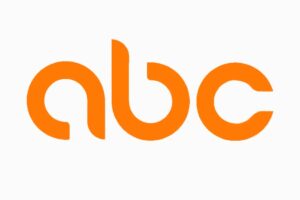
ABC Finance is a premier financial services entity in the UK, offering bespoke business financing solutions. Catering to a diverse clientele across multiple sectors, it provides custom funding options to aid businesses in reaching their financial aspirations, emphasising flexibility and dedicated support.
Types of business loan available
Secured Loans
- Interest Rates: Interest rates for secured loans (also known as homeowner loans or second charge mortgages) are not specified directly, rates can vary significantly.
- Fees: Fees include a lender arrangement fee, which can range from 0.5% to 5% of the total loan amount, and broker fees, where ABC Finance charges a flat fee of £1,495 for arranging a secured loan. Valuation fees are also mentioned, which vary based on the property assessment method used.
Development Finance
- Interest Rates: For loans below £500,000, rates start at around 6.5% per annum, increasing to around 9% for less experienced developers. For larger loans or those with a loan to gross development value (GDV) below 70%, rates can range from 4.5% to 7.5% per annum. High-risk loans might see rates between 0.85% to 1.35% per month (10.2% to 16.2% per annum).
- Fees: Fees include an arrangement fee (usually 1-2% of the loan), exit fees (1-2% of the loan amount or GDV), and potentially broker fees, although ABC Finance mentions they typically earn 1% from a successful application and thus may not charge a broker fee directly.
Commercial Mortgages
- Interest Rates: For owner-occupied properties, rates can vary from around 2.25% up to 12%, with most falling between 2.35% and 6.5%. Commercial investment mortgages have slightly higher rates, with strong applications possibly achieving rates as low as 2.85%, but typically between 3.5% and 6%.
- Fees: The lender arrangement fee ranges from 0.75% to 2.5% of the loan amount. Additionally, there might be a commitment fee of around 0.25%, valuation fees (more complex and therefore higher than residential mortgages), and legal fees due to the complexity of commercial mortgage applications. ABC Finance notes they usually don’t charge fees on applications above £100,000 if being paid by the lender.
Standout features
- Tailor-made financing solutions that cater specifically to the unique needs of each business.
- A swift application process, ensuring quick access to funds.
- Expert guidance and support from dedicated account managers throughout the loan process.
- Flexible repayment options designed to accommodate various business operations and cash flow scenarios.
Typical fees and interest rates
Eligibility criteria
- Must be a UK-based business with a proven trading history, usually a minimum of 2 years.
- A solid credit history and financial performance that demonstrates the ability to repay the loan.
- For secured loans, a tangible asset (e.g., property or equipment) that can be offered as collateral.
- Businesses must provide detailed financial statements, including cash flow forecasts and business plans, as part of the application process.
Further information
Read our ABC Finance review or visit the website.
ArchOver
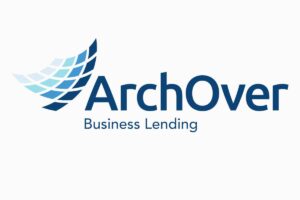
ArchOver is an innovative UK-based peer-to-peer lending platform that connects businesses seeking finance with investors looking to generate returns. It specialises in secured and insured lending, offering companies a novel route to funding beyond traditional banking, with a strong emphasis on security and transparent, fair terms for both borrowers and lenders.
Types of business loan available
- Loan Amounts: ArchOver offers UK business loans ranging from £100,000 to £1 million.
- Interest Rates: The rates start from 9.50% per annum. This rate applies to both secured and unsecured lending options provided by ArchOver.
- Loan Terms: Borrowers can opt for loan terms between 3 months and 5 years, with initial credit decisions reached within 48 hours.
- Secured Lending: ArchOver provides secured lending for purposes such as working capital, refinancing of existing loans, growth finance, acquisitions including MBOs (Management Buy-Outs) and MBIs (Management Buy-Ins), and asset purchases.
- Unsecured Lending: Unsecured lending from ArchOver is available for specific uses like Research & Development tax claims, Creative Tax Relief Claims, and Grant Receipts.
- Application Process: The lending process involves a face-to-face meeting with ArchOver’s credit team, who assess the business’ credit history before approval. Decisions are typically made within 48 hours.
- Reporting Requirements: All ArchOver lending services entail regular monthly reviews of the business’ finances and current and pending contracts, which implies an ongoing relationship and oversight over the loan period.
Standout features
- Direct connection between businesses and investors without the need for traditional banking intermediaries.
- Loans are secured or insured, providing peace of mind and stability for both parties.
- Transparent pricing and terms, with no hidden fees.
- Quick and efficient online application process, facilitating faster access to funds.
Typical fees and interest rates
Interest rates on loans typically range from 9.5% to 12% APR, depending on the loan’s security level, the borrower’s creditworthiness, and the term length. ArchOver charges borrowers an arrangement fee, usually around 3% to 5% of the loan amount. There are no early repayment fees, encouraging businesses to settle their loans as soon as they are able.
Eligibility criteria
- Businesses must be UK-based and operational for at least 2 years.
- A minimum annual turnover of £100,000 is typically required.
- Strong financial history and credit score to demonstrate repayment capability.
- For secured loans, businesses must possess tangible assets or accounts receivable that can be offered as collateral. For insured loans, the receivables must be insurable.
ArchOver presents a modern alternative to traditional business financing, offering competitive rates and terms for businesses looking to grow or manage their operations efficiently. With its focus on security through insured and secured lending, ArchOver provides a compelling option for both businesses in need of funds and investors looking for opportunities.
Further information
Read our ArchOver review or visit the website.
Aspire Business Loans

Aspire Business Loans is a dynamic UK financial broker offering a broad spectrum of tailored financing solutions to businesses of all sizes. With an emphasis on simplicity and speed, Aspire streamlines the loan application process, connecting companies with an extensive network of lenders to secure competitive financing options efficiently.
Types of business loan available
Aspire Business Loans offers a range of business funding options for UK-based businesses. They provide loans from £5,000 to £300,000 with repayment periods ranging from 1 to 5 years.
The company acts as a broker, utilising an extensive lending panel to find financing solutions for clients.
They offer both secured and unsecured business loans, alongside other financial products like invoice financing and debt refinancing.
Decisions on loan applications can be made the same day, depending on the lender.
Standout features
- Access to a wide network of lenders, increasing the chances of finding a suitable financing option.
- Fast and efficient online application process, with decisions and funding often provided in a matter of days.
- Flexible loan amounts and repayment terms, tailored to meet the specific needs of each business.
- Expert financial advice available to guide businesses through the loan selection process.
Typical fees and interest rates
Interest rates and fees vary significantly based on the loan type, business creditworthiness, and the lending institution. Generally, unsecured loans have higher interest rates than secured loans, with APRs ranging from 4% to 30%. Aspire Business Loans charges a broker fee, the amount of which is contingent on the loan and lender terms.
Eligibility criteria
- Must be a UK-registered business with a trading history of at least 6 months, though 2 years is preferred for more competitive rates.
- A minimum monthly turnover threshold, typically around £5,000, although this can vary by lender and loan type.
- A good credit history is preferred, but options are available for businesses with less-than-perfect credit scores.
- For specific loan types like invoice financing or merchant cash advances, businesses must demonstrate steady sales or receivables.
Aspire Business Loans distinguishes itself through its vast network of lenders and a commitment to simplifying the borrowing process, making it a go-to for UK businesses seeking quick, tailored financing solutions. Their service is particularly beneficial for companies that value flexibility and speed in securing funding to support their growth or manage cash flow challenges.
Further information
Read our Aspire Business Loans review or visit the website.
Atom Bank

Atom Bank is the UK’s first bank built exclusively for mobile, offering a revolutionary approach to business banking. It combines innovative technology with personalised customer service, providing businesses with efficient, transparent, and convenient financial products. Their focus on digital solutions represents a new era of banking, accessible anywhere, anytime.
Types of business loan available
Atom Bank offers business financing options that include both fixed and variable rate commercial mortgages, catering primarily to UK SMEs looking to grow. The specifics around fees and interest rates aren’t directly listed, but here’s what we know from their offerings:
Commercial Mortgages
- Types Offered: Atom Bank provides commercial mortgages with options for variable rate loans, which fluctuate with the Bank of England base rate, and fixed rate loans that offer predictable repayment amounts for terms of 2 to 6 years.
- Loan Amounts: Up to 75% loan-to-value (LTV) is offered, allowing businesses to leverage a significant portion of their property’s value for growth and investment.
- Application Process: Businesses interested in Atom Bank’s commercial mortgages are advised to work through a broker, which helps streamline the selection and application process.
Business Savings Accounts
- Savings Options: Atom Bank focuses on providing competitive savings accounts, with options including Instant Saver and Fixed Saver accounts. The Instant Saver account offers access to funds with interest paid monthly, while Fixed Saver accounts lock in funds for a term of six months to five years, offering higher interest rates for the committed duration.
Business Loans and Finance
- Atom Bank’s business finance solutions are geared towards secured lending, with loans backed by company assets. This includes both fixed rate secured loans, which maintain a constant interest rate over the loan period, and variable rate interest loans, which adjust based on the Bank of England base rate.
It’s worth noting that Atom Bank doesn’t offer business current accounts or overdrafts, focusing instead on savings and loan products.
For businesses looking for a blend of savings opportunities and growth financing, particularly through secured assets, Atom Bank presents a viable option.
Standout features
- Mobile-first approach, enabling businesses to manage their finances efficiently through an intuitive app.
- Competitive, transparent pricing with no hidden fees, providing clarity and confidence to businesses.
- Fast, streamlined application process, significantly reducing the time to receive funds.
- Strong focus on customer service, with dedicated support teams available to assist businesses at every step.
Typical fees and interest rates
Interest rates for Atom Bank’s business loans are competitive and vary based on the loan product, term length, and creditworthiness of the business. Fixed-rate loans provide predictability in repayments, with rates typically starting from around 3% APR. Commercial mortgages and secured loan rates are determined based on the loan-to-value ratio and the business’s financial health. Atom Bank prides itself on transparency, with all fees and charges clearly communicated upfront.
Eligibility criteria
- Must be a UK-based business with a minimum trading history, usually around 2 years.
- A good credit history and financial standing to demonstrate the ability to repay the loan.
- For secured loans and commercial mortgages, the business must have sufficient assets or property to offer as security.
- Businesses must be able to provide comprehensive financial information, including accounts, bank statements, and forecasts, as part of the application process.
Atom Bank is at the forefront of digital banking in the UK, offering business loans that combine the convenience of modern technology with competitive rates and terms. Their mobile-first strategy ensures that businesses can access financial products and manage their accounts with ease, representing a significant shift towards more accessible and user-friendly banking services.
Further information
Read our Atom Bank review or visit the website.
Bank of Scotland
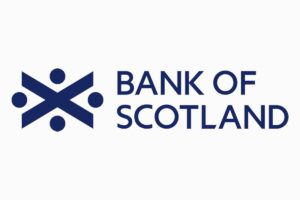
The Bank of Scotland, with centuries of history, provides a comprehensive range of financial services to businesses across the UK. Emphasising traditional values with modern efficiency, it offers customised banking solutions, including a variety of business loans designed to support growth, enhance cash flow, and facilitate investments in a dynamic economy.
Types of business loan available
- Bank of Scotland offers business banking services, including current accounts for different business sizes and types, savings accounts, overdrafts, foreign currency accounts, and various loan products.
- Business loans available with fixed or variable interest rates, with borrowing up to £25,000 or more for longer terms.
- Asset finance and invoice finance options support businesses in managing cash flow and purchasing major assets.
- Provides business insurance options including public liability and professional indemnity insurance.
In addition to traditional loans, Bank of Scotland offers a business credit card and a charge card, each catering to different spending needs and financial management styles. The business credit card comes with a maximum credit limit of £10,000 and a representative APR of 22.4%, while the charge card offers a simpler way to manage business expenses with the balance due in full each month.
Standout features
- A wide range of loan options to suit various business needs and financial situations.
- Access to dedicated relationship managers who provide personalised advice and support.
- Online and mobile banking services, enabling businesses to manage their finances conveniently.
- Flexible repayment options and competitive interest rates, designed to accommodate the financial health and stability of businesses.
Typical fees and interest rates
Interest rates for business loans from the Bank of Scotland vary depending on the loan type, amount, term, and the creditworthiness of the business. Fixed-rate loans provide stability in repayments, while variable-rate loans fluctuate with the market. Fees are transparent, with arrangement fees typically around 1-1.5% of the loan amount. Specific rates and fees are tailored to each business’s circumstances and are provided upon application.
Eligibility criteria
- Businesses must be based in the UK with a proven operational history, typically at least 2 years for most loan types.
- A solid financial record and the ability to meet repayment obligations.
- For secured loans, including commercial mortgages and asset finance, sufficient collateral is required.
- Comprehensive business documentation, including financial statements, business plans, and cash flow forecasts, is essential for the application process.
The Bank of Scotland stands as a pillar of traditional banking, infused with contemporary solutions to meet the needs of modern businesses. With its broad array of financial products and a commitment to personalised service, it remains a trusted partner for UK businesses seeking to navigate their financial journeys with confidence.
Further information
Read our Bank of Scotland review or visit the website.
Barclays
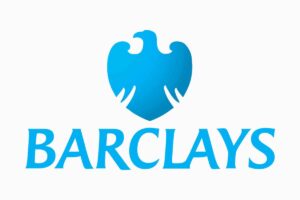
Barclays is a global financial institution with a strong presence in the UK, offering a wide range of business banking solutions. Known for its innovation and customer service, Barclays provides bespoke financing options, including diverse business loans that cater to the unique needs of both small and large enterprises.
Types of business loan available
- Barclays offers business loans and commercial mortgages with variable or fixed interest rates.
- Loan amounts go up to £100,000 for unsecured finance.
- Repayment terms range from 1 to 20 years.
Standout features
- A broad spectrum of lending products to suit different business stages and needs.
- Competitive interest rates and transparent fee structures.
- Access to dedicated business banking advisors and industry-specific expertise.
- Innovative digital banking tools, allowing businesses to manage their finances efficiently online or via the Barclays mobile app.
Typical fees and interest rates
Interest rates vary based on the loan product, amount, term, and business credit profile. Unsecured business loans generally have higher rates due to the increased risk, whereas secured loans offer more competitive rates. Fees include arrangement fees (usually 1-2% of the loan amount) and early repayment charges may apply. Exact rates and fees are detailed in the loan offer.
Eligibility criteria
- UK-based businesses with a Barclays business banking account.
- A minimum operational history, often around 2 years, although this can vary depending on the loan type.
- Good credit history and financial stability, demonstrating the ability to meet loan repayments.
- For secured loans, the availability of assets for collateral.
- Detailed financial documentation, including historical financial statements and future business projections.
Barclays combines a legacy of banking excellence with forward-thinking financial solutions, making it a preferred choice for UK businesses seeking reliable and comprehensive financing options. Its commitment to innovation and customer support ensures businesses have the resources and guidance to achieve their financial objectives.
Further information
Read our Barclays review or visit the website.
Bibby Financial Services
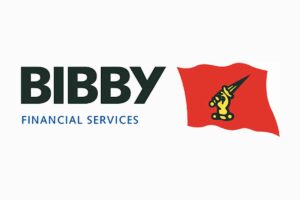
Bibby Financial Services is a leading independent financial services partner for small and medium-sized enterprises (SMEs) in the UK, offering a personalised approach to business financing. Specialising in invoice finance and asset-based lending, it provides flexible funding solutions to help businesses grow, manage cash flow, and overcome financial challenges.
Types of business loan available
Invoice Finance: Enables businesses to immediately access funds tied up in unpaid invoices, improving cash flow. This includes invoice discounting and factoring services, where Bibby Financial Services can manage credit control and collections on behalf of the business.
Asset-Based Lending: Combines loans secured against a range of assets, including receivables, inventory, machinery, and property. This option provides a larger funding base to support growth and acquisitions.
Trade Finance: Offers funding to pay suppliers upfront, enabling businesses to fulfill larger orders without impacting cash flow. Ideal for companies that import or export goods.
Export Finance: Tailored for businesses that trade internationally, providing working capital solutions to manage long payment terms and mitigate the risk of currency fluctuations.
Standout features
- A strong focus on flexible, accessible funding solutions tailored to the unique needs of SMEs.
- Dedicated support from a team of experts who understand the specific challenges faced by businesses in various sectors.
- Fast decision-making processes and quick access to funds, often within 24 hours of approval.
- A global presence with local expertise, offering specialised services for businesses engaged in international trade.
Typical fees and interest rates
Fees and interest rates are tailored to the specific financial product and the individual circumstances of the business. Invoice finance facilities typically involve a service fee (a percentage of the invoice value) and a discount charge (similar to interest on the advanced funds). Asset-based lending rates are competitive and depend on the assets’ value and the company’s financial strength. Specific rates and fees are provided upon application.
Eligibility criteria
- UK-based businesses with a track record of trading, ideally for at least 6 months to a year.
- Businesses with a turnover of at least £50,000, although this can vary depending on the financial product.
- For invoice finance and asset-based lending, the presence of tangible assets or receivables.
- A need for financing that matches the services offered by Bibby Financial Services.
Bibby Financial Services stands out for its commitment to supporting SMEs through a variety of financial challenges, offering a range of bespoke funding solutions that are designed to be flexible and responsive to the needs of modern businesses. Its approach combines personalised service with rapid access to funds, making it a valuable partner for businesses looking to navigate the complexities of growth and international trade.
Further information
Read our Bibby Financial Services review or visit the website.
Bluestar Leasing
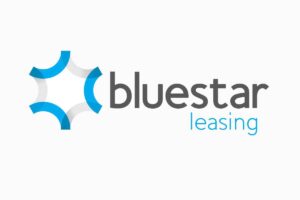
Bluestar Leasing is a specialist UK finance company dedicated to providing competitive and flexible leasing options for businesses of all sizes. With a focus on asset finance, Bluestar supports companies in acquiring the equipment and technology they need to grow and succeed without the burden of significant upfront costs.
Types of business loan available
Bluestar Leasing offers commercial loans starting from £5,000 with flexible repayment terms ranging from 3 months to 5 years. Their finance lease options cover a wide array of business assets, with terms typically between 1 and 5 years. Hire purchase agreements and operating leases are also available for specific assets and needs.
Equipment Leasing: Allows businesses to lease a wide range of equipment, from IT and office technology to machinery and vehicles, spreading the cost over time.
Technology Finance: Specifically designed for the purchase of the latest technology and software, ensuring businesses remain competitive and up-to-date.
Commercial Vehicle Finance: Offers financing options for businesses looking to lease or purchase commercial vehicles, catering to various sizes and types, including fleets.
Refinancing: Enables businesses to unlock cash tied up in existing assets for reinvestment or to improve cash flow, by refinancing the assets they already own.
Standout features
- A wide array of leasing and finance solutions tailored to meet the specific needs and challenges of businesses.
- Competitive rates and flexible terms, designed to suit different budgetary requirements and financial situations.
- Fast and efficient application process, with decisions typically made within hours.
- Expert advice and personalised service from a team dedicated to helping businesses navigate the financing process.
Eligibility criteria
- UK-based businesses across a wide range of sectors are eligible.
- A good credit history is preferred, although Bluestar considers all applications and can provide solutions for businesses with varied credit profiles.
- The ability to demonstrate the financial stability and cash flow necessary to meet lease payments.
- For certain types of finance, specific assets or collateral may be required.
Bluestar Leasing excels in offering bespoke leasing and financial solutions, making it easier for businesses to access the essential equipment and technology they need. With its customer-focused approach, Bluestar simplifies the financing process, allowing businesses to focus on their core operations and growth opportunities.
Further information
Read our Bluestar Leasing review or visit the website.
Braemar Finance
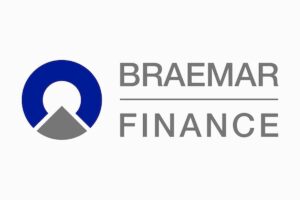
Braemar Finance is a prominent UK financier renowned for its tailored financial solutions for professionals in the healthcare, dental, veterinary, and optical sectors. With a deep understanding of these industries, Braemar offers loans, leases, and hire purchase agreements designed to support the growth and operational needs of practices.
Types of business loan available
Braemar Finance offers business loans, tax loans, VAT loans, and consolidation/refinancing loans for industries like medical, dental, and legal. They provide leasing and hire purchase for assets between £200,000 and £1,000,000. Business loans and asset-based financing are tailored to each business’s needs, with flexible terms.
Practice Loans: Unsecured loans tailored for professionals looking to finance practice expansion, refurbishment, or equipment purchase without providing collateral.
Equipment Finance: Offers loans and leasing options for the purchase of new equipment, helping practices stay at the forefront of technology.
Tax Loans: Specifically designed to spread the cost of tax bills over manageable monthly payments, easing the financial burden during tax season.
Hire Purchase: Allows businesses to purchase equipment outright while spreading the cost over an agreed term, eventually owning the asset once all payments are made.
Standout features
- Specialised financing options that understand the unique needs of healthcare and professional sectors.
- Competitive rates and flexible repayment terms to fit the financial cycles of practices.
- Quick and straightforward application process, with decisions often made promptly to facilitate immediate needs.
- Dedicated account managers provide personalised advice and support tailored to each sector.
Eligibility criteria
- Primarily aimed at professionals within the healthcare, dental, veterinary, and optical industries.
- UK-based practices with a proven track record of stable operation.
- Good credit history and financial standing are typically required, though Braemar Finance evaluates each application on its merits.
- For hire purchase and equipment finance, the asset being financed often serves as the collateral.
Braemar Finance stands out for its sector-specific expertise, offering financial products that are thoughtfully designed to meet the particular needs of professional practices in the healthcare and related industries. Its focus on tailored solutions, coupled with an understanding of the business cycles of its clients, makes it a preferred choice for practices seeking financial support for growth, technology upgrades, or operational funding.
Further information
Read our Braemar Finance review or visit the website.
Capify

Capify is a pioneering alternative finance provider in the UK, focusing on small and medium-sized enterprises (SMEs). With innovative financial products like merchant cash advances and unsecured business loans, Capify aims to support SME growth with fast, flexible funding solutions designed for businesses looking for a quick capital injection.
Types of business loan available
Capify offers business loans ranging from £5,000 to £500,000, with repayment terms of 6 to 18 months. Loans can be up to 75% of your annual turnover, with repayment options of daily or weekly. Fees include a processing fee and a monthly administration fee.
Merchant Cash Advances: Ideal for businesses with a high volume of credit card sales, providing immediate funding based on future sales projections. Repayments are taken as a percentage of daily credit card receipts, offering flexibility with fluctuating sales.
Unsecured Business Loans: A lump sum provided without requiring collateral, which can be used for any business purpose, such as expansion, inventory purchase, or cash flow management. Repayments are fixed over a predetermined term.
Standout features
- Specialises in fast and flexible funding solutions, making capital accessible to SMEs with minimal delay.
- Simple application process and quick decision-making, often within 24 hours.
- Repayment terms that adapt to the business’s cash flow, especially with the merchant cash advance product.
- Personalised customer service with dedicated account managers to guide businesses through the financing process.
Typical fees and interest rates
Interest rates and fees are tailored to the specific financial product and the business’s needs. Capify is known for its transparency, with all costs clearly outlined upfront. Merchant cash advances involve a factor rate rather than a traditional APR, and unsecured business loans have competitive rates based on the loan amount, term, and creditworthiness. Specific rates and fees are provided upon application.
Eligibility criteria
- UK-based SMEs across a wide range of sectors.
- A minimum of 6 months in business for merchant cash advances and slightly longer for unsecured business loans.
- For merchant cash advances, a consistent volume of credit card sales is required.
- Evidence of steady revenue and the ability to meet repayment terms.
- Trading accounts for at least 12 months
- Processing over £10,000 per month through your business bank account.
Capify stands out in the alternative finance market for its commitment to providing SMEs with quick, straightforward access to funding. Its products are designed to meet the needs of modern businesses, offering them the flexibility and speed required in today’s fast-paced business environment. With Capify, SMEs have a reliable partner to help fuel their growth and navigate financial challenges.
Further information
Read our Capify review or visit the website.
Catalyst Property Finance

Catalyst Property Finance is a UK-based specialist lender, providing innovative short-term finance solutions to property professionals and developers. With a focus on bridging loans, development finance, and refurbishment loans, Catalyst aims to empower clients with flexible, fast funding options tailored to the unique demands of the property market.
Types of business loan available
Catalyst Property Finance offers a range of specialist property finance options, including bridging, refurbishment, and commercial bridging loans, with loan amounts up to £25,000,000.
Bridging Loans: Designed for short-term funding needs, bridging loans help cover the gap between purchasing a new property and selling an existing one, or to secure quick purchases at auction.
Development Finance: Offers funding for property development projects, supporting everything from small renovations to large-scale constructions, with loans tailored to the project’s specifics.
Refurbishment Loans: Ideal for property investors looking to improve or convert properties before sale or rent, these loans are designed to finance both light and heavy refurbishment projects.
Standout features
- Specialises in the property sector, understanding the unique challenges and opportunities it presents.
- Quick decision-making and funding processes, recognising the time-sensitive nature of property deals.
- Flexible lending criteria, considering each project on its merits rather than adopting a one-size-fits-all approach.
- Personalised service with dedicated account managers who provide expert guidance throughout the loan period.
Typical fees and interest rates
Interest rates and fees are competitive within the property finance sector and are tailored to the individual project, its risk profile, and the borrower’s experience. Interest rates start from 0.85% per month, with loan terms ranging from 1 to 24 months. The maximum loan to value (LTV) offered is 80% of Open Market Value.
Eligibility criteria
- Primarily aimed at property professionals and developers within the UK.
- Projects must demonstrate viability, with a clear exit strategy in place.
- Applicants are typically required to have some level of property development or investment experience, although newcomers with strong proposals may also be considered.
- Financial stability and the ability to meet loan repayments as agreed.
Catalyst Property Finance stands out for its dedicated approach to property finance, offering bespoke solutions that cater specifically to the needs of property professionals and developers. With its expertise in the field, flexible funding options, and fast service, Catalyst is well-positioned to support clients in achieving their property investment and development goals.
Further information
Read our Catalyst Finance review or visit the website.
ClearFunder
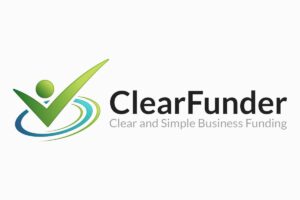
ClearFunder is a UK-based financing company focused on supporting small and medium-sized enterprises (SMEs) with straightforward, flexible business loans. Recognising the diverse needs of modern businesses, ClearFunder offers custom financial solutions designed to help businesses manage cash flow, invest in growth, and navigate the challenges of today’s dynamic market environment.
Types of business loan available
ClearFunder offers business loans between £10,000 and £100,000, to be repaid daily. It’s designed for businesses seeking fast cash, potentially including those with poor credit.
Unsecured Business Loans: These loans provide SMEs with immediate funding without requiring collateral, making them an ideal option for quick expansion, inventory purchase, or emergency cash flow needs.
Short-term Business Loans: Tailored for businesses seeking a temporary cash injection to cover short-term financial obligations or capitalise on immediate opportunities.
Standout features
- A commitment to simplicity and transparency throughout the loan application and funding process.
- Rapid decision-making and fund disbursement, often within a few days of application.
- Flexible repayment terms that can be adjusted to suit the cash flow patterns of the business.
- Personalised service with a focus on building long-term relationships with clients.
Typical fees and interest rates
Interest accrues daily, making early repayment cost-effective. For example, a £10,000 loan over 12 months would cost around £13,000 in total, equating to £51.59 per working day. While accessible, it’s a pricier option, suited for urgent needs rather than long-term financing.
Eligibility criteria
- UK-based SMEs across various sectors are eligible to apply.
- A minimum trading history, typically 6 months to a year, demonstrating the business’s ability to generate stable revenue.
- A positive credit history is preferred, though ClearFunder considers applications from businesses with a range of credit backgrounds.
- Proof of consistent revenue and the capacity to meet repayment terms.
ClearFunder distinguishes itself by offering flexible and accessible financial solutions to SMEs, coupled with a transparent and efficient service. Its focus on understanding and meeting the unique needs of each business it serves makes it a valuable partner for SMEs looking to thrive in a competitive marketplace.
Further information
Read our ClearFunder review.
Close Brothers
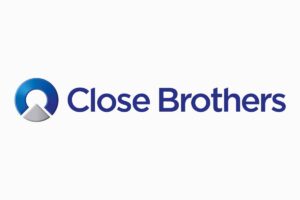
Close Brothers is a leading UK merchant banking group offering a wide range of financial services, including lending, deposit accounts, wealth management, and securities trading. Known for its prudent approach to business and focus on long-term relationships, it provides specialised financing solutions to small and medium-sized enterprises (SMEs) and professionals.
Types of business loan available
Commercial Loans: Tailored to support SMEs in managing cash flow, expanding operations, or investing in equipment, with flexible repayment terms.
Asset Finance: Helps businesses acquire new equipment or vehicles by spreading the cost over time, improving cash flow and enabling growth without significant capital outlay.
Invoice Finance: Allows businesses to unlock cash tied up in unpaid invoices, providing immediate working capital to improve liquidity.
Property Finance: Offers bespoke funding solutions for property developers and investors, including development finance and bridging loans for residential and commercial projects.
Standout features
- A comprehensive suite of financial products designed to meet the diverse needs of businesses across various sectors.
- A relationship-driven approach, with dedicated relationship managers providing personalised advice and support.
- Quick and transparent decision-making process, ensuring businesses have timely access to the funds they need.
- Strong focus on sustainable lending practices, ensuring the long-term success of its clients and the wider economy.
Typical fees and interest rates
Interest rates and fees vary depending on the type of loan, the amount borrowed, and the creditworthiness of the business. Close Brothers is committed to transparency, with all costs clearly communicated to clients upfront. Competitive rates reflect the quality of the lending proposition and the bespoke nature of the financial solutions offered.
Eligibility criteria
- Primarily serves UK-based SMEs and professionals across various industries.
- Applicants must demonstrate a stable financial history and the ability to meet repayment obligations.
- Specific financial products, like asset finance or invoice finance, may have additional requirements related to the assets or invoices being financed.
- A detailed business plan and financial projections may be required for property finance and larger commercial loans.
Close Brothers stands out for its comprehensive financial services and commitment to supporting the growth and sustainability of UK businesses. With its tailored lending solutions and emphasis on building long-term relationships, Close Brothers is a trusted partner for businesses looking to navigate the complexities of the financial landscape.
Further information
Read our Close Brothers review or visit the website.
Clydesdale Bank
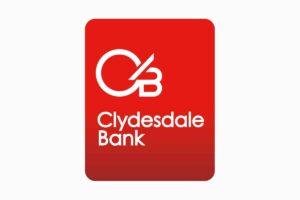
Clydesdale Bank, a well-established name in UK banking, offers a wide array of financial services tailored to both individuals and businesses. Renowned for its customer-focused approach, it provides bespoke business loans, current accounts, and savings solutions, supporting SMEs and larger corporations in achieving their financial objectives and fostering growth.
Types of business loan available
Clydesdale Bank offers business loans from £25,000 to £10 million, with options for fixed and flexible rates, and repayment terms up to 15 years.
Fixed Rate Loans: Offer stability with fixed interest rates throughout the loan term, making budgeting easier for businesses.
Variable Rate Loans: Flexibility with interest rates that fluctuate according to market changes, potentially benefiting businesses when rates decrease.
Asset Finance: Enables businesses to purchase or lease equipment and vehicles, thus managing cash flow effectively and supporting expansion.
Invoice Finance: Offers immediate access to funds tied up in unpaid invoices, improving liquidity for businesses with long payment cycles.
Standout features
- A broad portfolio of financial products designed to meet the specific needs of businesses across various sectors.
- Personalised service with dedicated relationship managers to assist businesses in navigating their financial journey.
- Access to online and mobile banking solutions, providing convenience and flexibility in managing finances.
- Competitive rates and transparent fee structures, with a commitment to supporting business growth and development.
Eligibility criteria
- Businesses must be based in the UK, with a focus on SMEs and larger corporations across a variety of industries.
- A solid financial history and the ability to repay the loan according to the agreed terms.
- For asset finance, the asset being financed often serves as collateral.
- Detailed financial documentation, including cash flow forecasts and business plans, may be required during the application process.
Clydesdale Bank distinguishes itself through its comprehensive range of financial services, robust support system, and a deep understanding of the business landscape. With its emphasis on customer service and tailored financial solutions, Clydesdale Bank is a valuable ally for UK businesses seeking to navigate financial challenges and seize growth opportunities.
Further information
Read our Clydesdale Bank review or visit the website.
Co-operative Bank

The Co-operative Bank stands out in the UK banking sector for its ethical approach, prioritising transparency, customer welfare, and social responsibility. Catering to personal and business customers, it offers a range of financial products, including business loans, current accounts, and savings options, all aligned with its commitment to positive societal impact.
Types of business loan available
The Co-operative Bank offers business finance options including loans between £1,000 and £250,000 with repayment terms of 1-15 years.
Fixed Rate Loans: Provide businesses with predictable monthly payments, facilitating easier financial planning and budget management.
Variable Rate Loans: Offer flexibility with rates that adjust in line with the market, potentially lowering costs when interest rates fall.
Commercial Mortgages: Designed for businesses looking to purchase or refinance property, offering competitive rates and flexible terms.
Overdrafts: Provide a flexible credit facility to manage cash flow effectively, allowing businesses to overdraw on their current accounts up to an agreed limit.
Standout features
- Ethical banking principles guide all financial products and services, ensuring businesses support social and environmental causes.
- Dedicated relationship managers offer personalised advice, tailored to the unique needs of each business.
- Online and mobile banking solutions for convenient account management, enhancing operational efficiency.
- Competitive interest rates and transparent fee structures, with a focus on fairness and customer satisfaction.
Typical fees and interest rates
Interest rates vary and are charged monthly. They also provide an overdraft facility up to £250,000 with interest rates based on the Bank of England Base Rate.
Eligibility criteria
- UK-based businesses, with a focus on those that share the bank’s ethical values and commitment to social responsibility.
- A proven track record of financial stability and the ability to meet repayment obligations.
- For certain products like commercial mortgages, collateral in the form of property may be required.
- Comprehensive financial documentation, including business plans and financial statements, is typically needed during the application process.
The Co-operative Bank is unique in its commitment to ethical banking, offering business customers not only financial solutions but also the opportunity to contribute positively to society. With a range of products designed to support business growth and sustainability, it’s a strong choice for those who value both financial success and social responsibility.
Further information
Read our Co-op Bank review or visit the website.
CubeFunder

CubeFunder is a UK-based financial technology company offering innovative funding solutions to small and medium-sized enterprises (SMEs). With a focus on flexibility and understanding the unique challenges SMEs face, CubeFunder provides short-term business loans that are tailored to support growth, manage cash flow, and address unexpected expenses.
Types of business loan available
CubeFunder provides short-term business loans ranging from £5,000 to £100,000, with repayment terms agreed upon upfront and tailored to be manageable on a daily or weekly basis. They cater to various businesses, including retailers and restaurants, to cover costs such as stock purchases or tax bills.
Standout features
- Rapid funding process with decisions made and funds potentially disbursed within days of application.
- No penalty for early repayment, providing businesses with the flexibility to manage their finances as efficiently as possible.
- A simple, transparent fee structure with no hidden costs, making it easier for businesses to plan their financial commitments.
- Loans are based on the overall business performance and future cash flow projections rather than just credit history, broadening access to finance for more SMEs.
Typical fees and interest rates
Although interest rates are not publicly disclosed, making it difficult to gauge the cost without applying, CubeFunder is noted for its efficient customer service and flexible repayment options.
Eligibility criteria
- Primarily targets UK-based SMEs across a variety of sectors.
- A minimum trading history, usually around 6 months, to demonstrate business viability and consistent revenue generation.
- Evidence of steady business activity and the potential for future cash flow to ensure repayment capability.
- A straightforward application process that requires basic business information, financial statements, and an overview of the funding need.
CubeFunder is a forward-thinking finance provider that recognises the dynamic needs of modern SMEs. By offering tailored, short-term business loans with a focus on speed, flexibility, and transparency, CubeFunder positions itself as an essential partner for businesses looking to navigate the complexities of today’s economic landscape.
Further information
Read our CubeFunder review or visit the website.
Fleximize

Fleximize is an innovative UK-based alternative finance provider dedicated to empowering small and medium-sized enterprises (SMEs) with flexible financing solutions. Recognised for its tailored approach, Fleximize offers a range of products including unsecured and secured business loans, designed to support businesses through growth, expansion, and operational challenges.
Types of business loan available
Fleximize offers flexible business loans up to £500,000, catering to SMEs and sole traders with the options for repayment holidays and no early repayment fees. Loans are available on both secured and unsecured bases, with terms up to three years for businesses trading for at least six months to a year.
Unsecured Business Loans: Quick access to funds without requiring collateral, ideal for short-term financial needs or growth opportunities.
Secured Business Loans: Higher loan amounts available with collateral, offering lower interest rates and longer repayment terms for substantial business investments.
Revenue Advance: A financing solution based on future credit and debit card sales, providing flexible repayments that align with business revenue.
Standout features
- A commitment to flexibility, allowing businesses to top-up their loan or take payment holidays as needed.
- Rapid funding, with decisions typically made within hours and funds transferred soon after approval.
- Personalised service, including access to dedicated account managers who work to understand and meet each business’s unique needs.
- Penalty-free early repayment options, enabling businesses to save on interest by paying off loans ahead of schedule.
Typical fees and interest rates
Interest rates and fees are competitive and transparent, tailored to the specific circumstances of the business, including creditworthiness, the loan amount, and the chosen product. Fleximize provides clear, upfront information about all costs, ensuring businesses can make informed financial decisions without unexpected charges.
Eligibility criteria
- UK-based SMEs across various industries are eligible.
- A minimum trading history, typically 6 months, demonstrating consistent revenue generation.
- For unsecured loans, proof of revenue and business performance; for secured loans, suitable collateral must be provided.
- A straightforward application process that includes financial documentation and a detailed account of how the loan will be used.
Fleximize stands out for its flexible financing solutions and commitment to supporting SME growth. By offering a range of tailored products and services, including the innovative Revenue Advance, Fleximize ensures that businesses can access the funds they need in a way that suits their unique financial situations and goals.
Further information
Read our Fleximize review or visit the website.
Folk2Folk
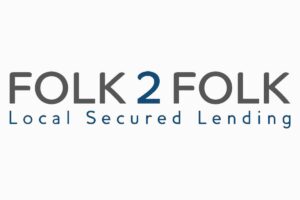
Folk2Folk is a leading UK-based peer-to-peer lending platform specialising in secured loans for rural and local businesses. It connects these businesses with investors seeking ethical and tangible returns, fostering community growth and financial inclusivity. Folk2Folk champions local investment, supporting SMEs, farmers, and property developers with bespoke financing solutions.
Types of business loan available
Folk2Folk offers secured business loans starting from £10,000, with terms ranging from six months to five years. This lender caters primarily to businesses in the farming and agricultural sectors but is open to any SME seeking funding for various purposes.
Standout features
- A strong focus on supporting rural and local businesses, promoting community and economic development.
- Competitive interest rates for borrowers and attractive returns for investors, facilitated by a secured lending approach.
- Flexible loan terms, designed to meet the specific needs of the borrower, with the possibility of interest-only payments.
- A straightforward, transparent process for both borrowers and lenders, underpinned by a strong ethos of fairness and community support.
Typical fees and interest rates
Interest rates begin at 7.5%, and specific rates will be determined upon application.
Eligibility criteria
- Primarily targets UK-based rural and local businesses, including SMEs, farmers, and property developers.
- A requirement for tangible security, usually in the form of land or property, to back the loan.
- A clear business case for the loan, demonstrating how it will support the business’s growth or sustainability.
- A straightforward application process that emphasises the business’s impact on the local community and economy.
Folk2Folk uniquely positions itself in the financial sector by facilitating a peer-to-peer lending model that not only provides secured financing options for businesses but also offers a platform for investors to contribute directly to the growth and sustainability of local communities. Its focus on secured lending and community development makes it an attractive option for businesses looking for alternative financing solutions.
Further information
Read our Folk2Folk review or visit the website.
Funding Circle
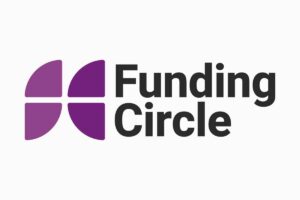
Funding Circle is a global peer-to-peer lending platform that connects small and medium-sized enterprises (SMEs) with investors, offering an innovative alternative to traditional bank loans. In the UK, it specialises in unsecured business loans, enabling quick access to funding for growth, cash flow management, and capital expenditure.
Types of business loan available
Funding Circle offers business term loans up to £500,000 with repayment terms ranging from six months to seven years. This lender suits established businesses with good credit, requiring a minimum credit score of 660. Loans can be received as fast as three days, but a business lien and personal guarantee are necessary.
Standout features
- A streamlined online application process that allows for quick decisions and fast access to funds, often within a few days.
- Competitive interest rates, with the flexibility to repay early without penalty, reducing the overall cost of borrowing.
- A diverse pool of investors, ensuring a wide availability of funds for businesses of all sizes and sectors.
- Dedicated customer support to assist businesses throughout the loan application process and beyond.
Typical fees and interest rates
Loans can have APRs from 15.22% to 45%, and origination fees range from 4.49% to 8.49%.
Eligibility criteria
- UK-based businesses with a minimum trading history of two years.
- A strong credit history and financial performance that demonstrates the business’s ability to repay the loan.
- Businesses must have a solid business plan and clear purpose for the loan, contributing to their growth and sustainability.
- Financial documentation, including annual accounts and bank statements, will be required to support the application.
Funding Circle stands out in the alternative finance market for its focus on unsecured business loans, offering a straightforward and efficient way for SMEs to access funding. With its innovative platform, Funding Circle provides a vital link between businesses in need of finance and investors looking to support the growth and health of the UK economy.
Further information
Read our Funding Circle review or visit the website.
Hope Capital

Hope Capital is a UK-based specialist bridging finance provider, offering bespoke, short-term lending solutions primarily to the property market. Catering to investors, developers, and landlords, Hope Capital is dedicated to fast, flexible financing, enabling clients to swiftly seize opportunities or resolve financial challenges in their property ventures.
Types of business loan available
Hope Capital offers secured bridging loans between £100,000 and £5,000,000.
Standout features
- Rapid funding decisions and loan disbursements, understanding the time-sensitive nature of property transactions.
- Flexible loan terms and bespoke solutions that consider each borrower’s unique situation and project needs.
- Transparent fee structures with competitive interest rates, ensuring clients are fully informed of their financial commitments.
- A personal approach with dedicated account managers providing guidance and support throughout the loan process.
Typical fees and interest rates
Hope Capital bridging loans are available with interest rates starting from 0.72%. They provide flexible terms but require repayment within 18 months.
Eligibility criteria
- UK-based property investors, developers, and landlords.
- Projects must demonstrate clear viability with a robust exit strategy.
- Loans are typically secured against residential, commercial, or mixed-use properties.
- Applicants must provide a comprehensive overview of their project, including timelines, budgets, and expected outcomes.
Hope Capital distinguishes itself with a strong focus on the property market, offering tailored bridging finance solutions that cater to the fast-paced nature of property investments and developments. With its commitment to speed, flexibility, and personalised service, Hope Capital is a key partner for those looking to navigate the complexities of the UK property market effectively.
Further information
Read our Hope Capital review or visit the website.
HSBC
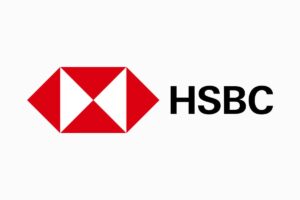
HSBC is one of the world’s largest banking and financial services organisations, offering a comprehensive range of services to individuals, businesses, and governments globally. In the UK, HSBC provides a diverse portfolio of business banking solutions, including loans, overdrafts, and finance options, tailored to support business growth and sustainability.
Types of business loan available
HSBC offers a Small Business Loan with a maximum amount of £25,000 and a Flexible Business Loan for amounts over £25,001. HSBC’s loans stand out for their capital repayment holidays and a potential cashback offer for green projects.
Fixed Rate Loans: Offers predictable repayments for businesses looking to manage their finances with certainty.
Flexible Business Loans: Provides the option to adjust repayment terms, offering businesses the ability to tailor their finance to suit changing needs.
Commercial Mortgages: For businesses looking to purchase or refinance property, with tailored repayment terms.
Asset Finance: Helps businesses acquire essential equipment and vehicles without a significant initial outlay, supporting cash flow and growth.
Standout features
- A global network offering access to international markets and financial expertise, ideal for businesses looking to expand overseas.
- Dedicated relationship managers for personalised support and advice, helping businesses navigate their financial options.
- Innovative digital banking solutions, including mobile and online banking, for efficient financial management.
- Sustainability-linked loans that incentivise businesses to meet specific environmental targets.
Typical fees and interest rates
The Small Business Loan comes with a representative APR of 7.1% for loans over £10,000, with terms ranging from 1 to 10 years. Flexible Business Loans have terms up to 20 years, with options for fixed or variable rates.
Eligibility criteria
- UK-based businesses with a clear business plan and evidence of stable financial performance.
- A solid credit history, demonstrating the ability to meet repayment obligations.
- For certain products, such as asset finance or commercial mortgages, collateral may be required.
- Comprehensive financial documentation, including accounts and forecasts, will likely be needed as part of the application process.
HSBC’s extensive range of financial products and services, combined with its global reach and focus on sustainability, makes it a preferred choice for businesses of all sizes looking for reliable and comprehensive banking solutions. With its emphasis on personalised service and innovation, HSBC supports businesses in achieving their strategic objectives while navigating the complexities of the global financial landscape.
Further information
Read our HSBC review or visit the website.
Huddle Capital
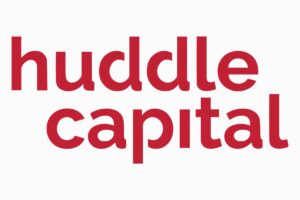
Huddle Capital is a UK-based peer-to-peer lending platform that focuses on connecting small and medium-sized enterprises (SMEs) with investors, offering an innovative approach to business financing. It specialises in short-term loans, providing SMEs with quick access to funds for growth, cash flow management, and project financing.
Types of business loan available
Short-term Business Loans: Primarily designed for SMEs in need of rapid financing, these loans offer a quick and efficient way to access capital, with terms typically ranging from a few months to a couple of years.
Standout features
- A straightforward and speedy application and approval process, enabling businesses to access funds promptly.
- Competitive interest rates, providing cost-effective financing options for SMEs.
- Flexible repayment options that cater to the business’s cash flow and financial planning needs.
- A strong community of investors, ensuring a reliable source of funding for various business projects and needs.
Typical fees and interest rates
Interest rates are competitive and determined based on the creditworthiness of the business, the amount borrowed, and the loan term. Huddle Capital is transparent about its fee structure, which includes a platform fee for borrowers that is disclosed upfront during the application process.
Eligibility criteria
- Primarily targets UK-based SMEs across various sectors.
- Businesses must demonstrate a solid financial history and the potential for future growth.
- A minimum trading history is often required to show the business’s viability and ability to repay the loan.
- Financial documentation, such as recent accounts and cash flow forecasts, may be required to support the application.
Huddle Capital offers a modern alternative to traditional business financing, providing SMEs with the opportunity to secure funding quickly and efficiently. Its focus on short-term loans and a user-friendly platform makes it an attractive option for businesses looking to bridge financing gaps or capitalise on immediate opportunities without the lengthy application processes associated with traditional banks.
Further information
Read our Huddle Capital review or visit the website.
Independent Growth Finance
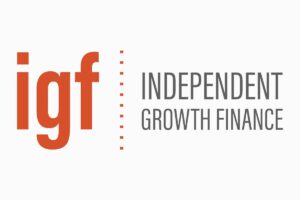
Independent Growth Finance (IGF) is a leading UK provider of commercial finance solutions, specialising in asset-based lending and invoice finance. Catering primarily to SMEs, IGF aims to support business growth and operational flexibility by offering tailored financing structures that leverage companies’ existing assets and receivables.
Types of business loan available
IGF Independent Growth Finance offers a variety of finance solutions like invoice financing, asset-based lending, and commercial finance, aiming at mid-tier businesses with substantial turnover.
They provide rapid access to funds through invoice financing, with loans up to 90% of invoice values, and asset-based lending with up to 85% of inventory value.
However, a minimum annual turnover of £3,000,000 is required for their services.
Standout features
- Customised financing solutions that are tailored to the specific needs and challenges of each business.
- Expert advice and support from a team of experienced finance professionals who understand the unique dynamics of SMEs.
- Fast and flexible funding decisions, allowing businesses to quickly capitalise on opportunities or address financial challenges.
- A strong focus on building long-term partnerships with clients, offering not just financing but strategic business support.
Typical fees and interest rates
Interest rates and fees for IGF’s financial products are competitive and tailored to the specifics of each deal, including the type of financing, the amount borrowed, and the risk profile of the business.
Eligibility criteria
- UK-based businesses with a clear business model and a proven track record in their industry.
- Minimum of £3,000,000 turnover.
- A strong ledger of receivables for businesses seeking invoice finance.
- Tangible assets that can be used as collateral for asset-based lending.
- Comprehensive financial documentation, including historical financials and forecasts, to support the application process.
IGF Independent Growth Finance is renowned for its flexible and responsive approach to financing, making it a vital resource for SMEs looking to navigate the complexities of growth and operational management. With a commitment to understanding and meeting the unique needs of each business, IGF offers a valuable partnership for companies seeking strategic financial support.
Further information
Read our IGF review or visit the website.
Iwoca
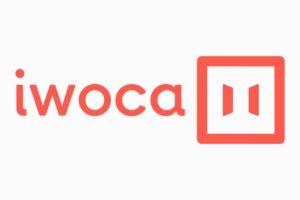
Iwoca is a fintech company revolutionising small business financing in the UK by offering fast, flexible credit facilities. Specialising in short-term loans, Iwoca provides SMEs with accessible funding solutions to manage cash flow, invest in stock, or cover unexpected costs, supporting business growth and operational agility.
Types of business loan available
Iwoca offers unsecured business flexi-loans ranging from £1,000 to £50,000, with interest accruing daily, allowing for early repayment without extra costs.
They also provide revenue-based loans, a type of merchant cash advance, with repayments based on monthly income, capped at twice your average monthly income with a loan fee of 6% to 20% added to the total repayment amount.
Standout features
- Rapid application and decision-making process, with the potential to access funds within hours.
- No early repayment fees, providing businesses with the flexibility to manage their loans according to their cash flow.
- A simple, transparent fee structure with competitive interest rates, ensuring businesses understand their financial commitments.
- Personalised credit limits based on the business’s performance and needs, offering a tailored approach to financing.
Eligibility criteria
- Primarily targets UK-based SMEs across a variety of sectors.
- Businesses must demonstrate a stable trading history, typically at least 6 months, and the ability to repay the borrowed funds.
- Although offering rapid funding, Iwoca requires a minimum annual turnover of £50,000 for flexi-loans or a monthly income of £500 for revenue-based lending.
- The application process requires basic business information, financial statements, and, in some cases, bank statements.
Iwoca stands out in the SME financing landscape for its innovative approach to lending, offering fast, flexible financial solutions that meet the evolving needs of modern businesses. With a commitment to simplicity and transparency, Iwoca has become a go-to provider for SMEs seeking to navigate their financial challenges and seize growth opportunities.
Further information
Read our Iwoca review or visit the website.
Kriya
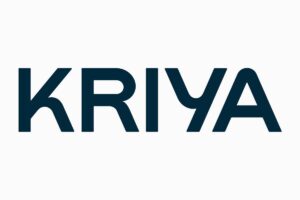
Kriya, previously known as Market Finance, is a dynamic UK fintech firm that revolutionises the way SMEs access funding. Specialising in invoice finance, business loans, and supply chain finance, Kriya provides flexible financing solutions that align with business cash flow, supporting growth and operational efficiency for small and medium-sized enterprises.
Types of business loan available
Kriya offers flexible financing solutions like invoice finance, where businesses can receive up to 90% of their invoice values upfront, with specific fees for their services once the invoice is settled.
Though details on lump sum business loans are less clear, they’re available for SMEs meeting certain criteria.
However, Kriya’s services, including potential fees and interest rates for various products, might vary, so it’s recommended to consult directly with them for the most accurate and current information.
Invoice Finance: Allows businesses to unlock cash tied up in unpaid invoices, improving cash flow almost immediately.
Business Loans: Unsecured loans that offer quick and straightforward access to funds, enabling businesses to invest in growth opportunities or manage short-term financial needs.
Supply Chain Finance: Helps businesses improve their payment terms with suppliers, enhancing supply chain efficiency and liquidity.
Standout features
- A focus on flexible and innovative financing solutions that meet the evolving needs of SMEs.
- Rapid application and funding processes, enabling businesses to access the finance they need without lengthy delays.
- A transparent pricing model with competitive rates, ensuring businesses can plan their finances effectively.
- Personalised service with a team of experts who understand the specific challenges faced by SMEs.
Typical fees and interest rates
Interest rates and fees are competitive and tailored to each business’s specific situation, including the product chosen, the amount of funding, and the company’s credit profile. Kriya is committed to transparency, providing businesses with clear information on all associated costs upfront.
Eligibility criteria
- Primarily serves UK-based SMEs across a wide range of sectors.
- Businesses must demonstrate a solid trading history and financial stability, with specific requirements varying by product.
- Aimed at SMEs and partnerships, requiring a minimum turnover of £100,000 for some lending streams.
- For invoice finance, businesses need to have outstanding invoices with other businesses (B2B).
- Application processes are streamlined, requiring basic business information, financial statements, and, for invoice finance, details of outstanding invoices.
Kriya stands out for its commitment to providing SMEs with quick, flexible, and transparent financing solutions. By focusing on the specific needs of small and medium-sized enterprises, Kriya supports business growth and sustainability, making it a valuable partner for UK businesses looking for alternative financing options.
Further information
Read our Kriya review or visit the website.
LendingCrowd
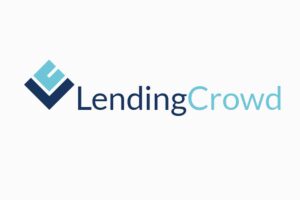
LendingCrowd is a leading UK peer-to-peer lending platform that connects small and medium-sized enterprises (SMEs) with investors, offering a modern approach to business financing. Specialising in providing SMEs with accessible, flexible loans, LendingCrowd supports businesses in their growth, expansion, and cash flow management efforts.
Types of business loan available
LendingCrowd offers peer-to-peer business loans ranging from £25,001 to £500,000, with repayment periods between six months and five years.
Term Loans: Fixed-term loans that provide businesses with a lump sum upfront, repayable over a predetermined period, ideal for long-term investments and growth projects.
Line of Credit: A flexible credit facility that allows businesses to draw funds as needed, up to an approved limit, offering a solution for managing cash flow fluctuations.
Standout features
- A streamlined online application process that allows for quick funding decisions, often within 24 hours.
- Competitive interest rates, providing cost-effective borrowing options for businesses.
- Flexible repayment terms, enabling businesses to choose options that best fit their financial planning and cash flow needs.
- A diverse pool of investors, ensuring a steady availability of funds for loans.
Typical fees and interest rates
Interest rates start at 5.65% and vary based on the business’s credit history and performance.
Eligibility criteria
- Targeted at UK-based SMEs across various industries.
- Businesses need to have been trading for at least two years and have a minimum annual turnover of £100,000 to qualify.
- A solid financial history and the ability to meet repayment obligations are required.
- Applicants must provide detailed business information, including financial statements and cash flow projections, as part of the application process.
LendingCrowd stands out for its ability to provide SMEs with fast, flexible financing options, bridging the gap between traditional bank loans and the needs of modern businesses. By leveraging technology and a broad investor base, LendingCrowd offers a valuable platform for businesses seeking to grow, manage cash flow, or undertake new projects.
Further information
Read our LendingCrowd review or visit the website.
Liberis

Liberis is an innovative financial technology company offering alternative funding solutions to small and medium-sized enterprises (SMEs) across the UK. Specialising in revenue-based financing, Liberis aligns repayment with business sales, providing a flexible way for businesses to access funding without the fixed repayment schedule of traditional loans.
Types of business loan available
Liberis specialises in merchant cash advances, offering loans between £1,000 and £1,000,000 for small businesses that process card payments.
Repayments are made as a percentage of future card sales, which can vary based on business income, providing flexibility especially during slower trading periods.
Standout features
- Repayments are directly tied to business revenue, offering significant flexibility during periods of varying sales.
- Quick and straightforward application process, with decisions and funding often available within days.
- No fixed repayment term or late fees, reducing the financial strain on businesses during slower periods.
- Transparent fee structure, with businesses paying a single, fixed cost upfront, with no hidden charges.
Typical fees and interest rates
Liberis offers a transparent pricing model, with businesses paying a single, fixed fee determined at the outset of the funding agreement. There are no interest rates in the traditional sense, as costs are based on the funding amount and projected sales. This model ensures businesses know their total repayment amount from the beginning, facilitating better financial planning.
Eligibility criteria
- Designed for UK-based SMEs with a consistent record of card transactions or sales.
- A minimum of 4 months in business, demonstrating the ability to generate steady sales.
- Businesses should have a minimum monthly card sales volume, typically around £2,500, although this can vary.
- The application requires basic business information, recent sales data, and in some cases, bank statements.
Liberis provides a unique and flexible funding solution for SMEs, particularly those with seasonal sales patterns or fluctuating revenue. By aligning repayments with business performance, Liberis offers a less stressful and more adaptable approach to business financing, supporting growth and stability without the rigid constraints of traditional lending models.
Further information
Read our Liberis review or visit the website.
Lloyds Bank
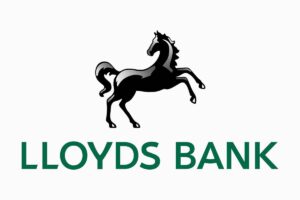
Lloyds Bank is a longstanding institution in the UK banking sector, offering a comprehensive suite of financial products and services. With a strong focus on business banking, Lloyds provides a range of tailored solutions for SMEs and larger corporations, including loans, overdrafts, and financing options, to support business growth and sustainability.
Types of business loan available
Lloyds Bank offers business loans up to £25,000 with fixed or variable interest rates. The loans can be repaid over up to 25 years.
They provide a range of financial products for businesses, including credit cards and asset finance, tailored to different business sizes and needs.
Fixed Rate Loans: Offers businesses the certainty of fixed monthly repayments, facilitating easier budgeting and financial planning.
Base Rate Linked Loans: Provides a variable interest rate that tracks the Bank of England base rate, offering flexibility in interest payments.
Commercial Mortgages: Tailored for businesses looking to purchase or refinance property, with repayment terms designed to suit business cash flow.
Asset Finance: Enables businesses to acquire essential equipment or vehicles, supporting growth without impacting cash reserves significantly.
Standout features
- A diverse range of financing products to meet the varied needs of businesses across sectors.
- Dedicated relationship managers for support and expert guidance.
- Access to a broad network of branches and advanced online banking services, ensuring convenient account management.
- Competitive rates and transparent fee structures, with a focus on providing value to business customers.
Typical fees and interest rates
Lloyds Bank offers fixed or variable interest rates, with a representative APR of 12.7%.
Eligibility criteria
- UK-based businesses with a clear business plan and evidence of stable financial performance.
- A good credit history, demonstrating the ability to meet repayment obligations.
- For asset finance and commercial mortgages, collateral may be required.
- Comprehensive financial documentation, including accounts and forecasts, will likely be needed as part of the application process.
Lloyds Bank combines its rich heritage with a modern approach to banking, offering a range of financial solutions designed to support the unique needs of UK businesses. With its emphasis on personalised service and a commitment to supporting economic growth, Lloyds Bank is a trusted partner for businesses at every stage of their development.
Further information
Read our Lloyds Bank review or visit the website.
Merchant Money
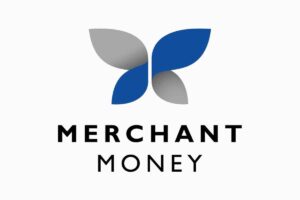
Merchant Money is a UK-based financial services provider specialising in bespoke funding solutions for small and medium-sized enterprises (SMEs). Offering a range of products from short-term loans to invoice financing, Merchant Money focuses on providing quick, flexible finance options to help businesses grow, manage cash flow, and seize opportunities.
Types of business loan available
Merchant Money provides unsecured business loans ranging from £50,000 to £250,000, typically capped at 150% of annual turnover, with repayment terms of 6 to 60 months. They also offer secured loans and bridging loans under specific conditions.
Short-term Business Loans: Ideal for SMEs needing quick access to capital for growth, inventory purchase, or bridging cash flow gaps, with terms ranging from 1 to 24 months.
Pay As You Trade: A flexible funding solution that adapts to a business’s sales, ideal for seasonal businesses or those with fluctuating revenue.
Standout features
- Fast and efficient application process, with decisions made and funds potentially available within hours.
- Flexible repayment terms, including the innovative Pay As You Trade product that aligns repayments with business revenue.
- Competitive interest rates and transparent fee structures, with no hidden costs.
- Dedicated customer support, offering personalised service to each business client.
Typical fees and interest rates
A set-up fee is applied, and interest rates can reach up to 3% per month (APR 36%).
Eligibility criteria
- Primarily aimed at UK-based SMEs across various sectors.
- Eligibility requires a minimum annual turnover of £350,000
- At least 24 months of trading history.
- A positive credit history is preferred, though Merchant Money also considers businesses with less-than-perfect credit scores.
- Application process involves providing detailed business information, financial statements, and, for the Pay As You Trade product, evidence of sales performance.
Merchant Money is recognised for its innovative approach to business financing, offering SMEs quick, flexible, and transparent funding solutions. With a focus on meeting the unique needs of each business, Merchant Money supports UK SMEs in navigating financial challenges and capitalising on growth opportunities.
Further information
Read our Merchant Money review or visit the website.
Metro Bank
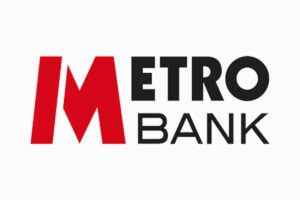
Metro Bank, a trailblazer in the UK banking sector, offers a fresh approach to banking with its customer-centric services and extended opening hours. It provides a comprehensive suite of financial products for personal and business customers, including business loans, overdrafts, and cash management services, aiming to simplify banking for SMEs.
Types of business loan available
Metro Bank offers business loans with fixed-rate options between £2,000 and £60,000, and tailored rates for loans over £60,000, extending to over £25 million. Loan terms range from one to thirty years.
The bank provides both secured and unsecured loans, subject to status, and emphasises its customer service availability and branch support across England and Wales.
Fixed Rate Business Loans: Secure funding with predictable monthly payments, ideal for budgeting and financial planning.
Variable Rate Loans: Offers flexibility with interest rates that adjust with the market, potentially benefiting businesses in a declining rate environment.
Commercial Mortgages: Customised financing for purchasing or refinancing business properties, with terms designed to match business cash flow.
Standout features
- Exceptional customer service with a focus on convenience, including physical branches open 7 days a week and late hours.
- Quick and straightforward application processes, enabling businesses to access funds efficiently.
- Innovative banking solutions, including comprehensive online and mobile banking platforms.
- A commitment to transparency, with clear information on interest rates and fees.
Typical fees and interest rates
Interest rates and fees are competitive and depend on the loan product, amount, and term, as well as the business’s financial condition. Metro Bank is known for its straightforward fee structure, ensuring businesses are fully informed about all costs involved in their financing solutions.
Eligibility criteria
- Targeted at UK-based businesses of all sizes, from startups to established enterprises.
- To be eligible, businesses must have a Metro Bank business bank account.
- A solid financial history and the ability to meet repayment obligations.
- For commercial mortgages, a substantial deposit may be required.
- Businesses must provide comprehensive financial documentation, including accounts and forecasts, during the application process.
Metro Bank stands out for its modern approach to banking, combining the convenience of physical branches with the efficiency of digital banking solutions. It supports UK businesses with a range of financial products designed to foster growth and stability, underscored by a commitment to exceptional customer service and transparency.
Further information
Read our Metro Bank review or visit the website.
NatWest
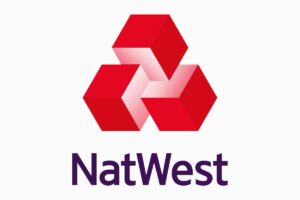
NatWest is a major player in the UK banking sector, offering a wide range of financial services tailored to both personal and business customers. Known for its comprehensive support for SMEs, NatWest provides business loans, overdrafts, and specialist financing solutions, aimed at fostering business growth and operational resilience.
Types of business loan available
NatWest provides business loans ranging from £1,000 to over £10 million, with terms from 3 to 300 months.
Fixed Rate Loans: Ensures stable repayment amounts for the loan’s duration, aiding in financial planning and budgeting.
Variable Rate Loans: Offers flexibility with repayments that vary according to the market rate, suitable for businesses anticipating changes in cash flow.
Government-backed Loans: Includes schemes like the Recovery Loan Scheme (RLS), designed to support businesses with additional funding under favourable terms.
Commercial Mortgages: For purchasing business premises or refinancing existing properties, tailored to meet long-term financing needs.
Standout features
- A wide array of financial products to support businesses at various growth stages.
- Access to dedicated business advisors offering tailored advice and support.
- A strong focus on sustainability and innovation, with specific funding options for green initiatives and technology advancements.
- Advanced digital banking tools, including online and mobile platforms, for efficient financial management.
Typical fees and interest rates
They offer both fixed and variable rates, tailored to your business’s financial situation.
Eligibility criteria
- Primarily aimed at UK-based businesses, from startups to established enterprises.
- A solid financial history and the ability to repay the loan.
- For government-backed loans and certain other products, specific eligibility criteria set by the scheme apply.
- Comprehensive financial documentation, including business plans and cash flow forecasts, is required for the application process.
NatWest distinguishes itself with its extensive range of financial services and commitment to supporting UK businesses. Its focus on customer service, innovation, and sustainability makes it a valuable banking partner for businesses looking to navigate their financial journeys successfully.
Further information
Read our NatWest review or visit the website.
Novuna
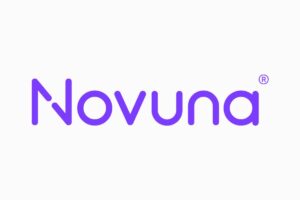
Novuna, formerly known as Hitachi Capital (UK) PLC, is a prominent financial services provider in the UK, offering a range of funding solutions to businesses and consumers. With a focus on innovation and sustainability, Novuna provides asset finance, invoice finance, and commercial loans, supporting business growth and development.
Types of business loan available
Asset Finance: Enables businesses to acquire or lease equipment and vehicles, spreading the cost over time and preserving capital for other uses.
Invoice Finance: Offers businesses advance funds against their outstanding invoices, improving cash flow and reducing the wait for payments.
Commercial Loans: Tailored funding solutions for businesses looking to finance growth projects, expansions, or operational needs without specific collateral requirements.
Standout features
- A strong commitment to sustainability and responsible financing, aligning with businesses’ values and ethical considerations.
- Competitive rates and flexible terms across its product range, tailored to meet the specific needs of each business.
- A streamlined application and approval process, ensuring businesses can access the funds they need quickly and efficiently.
- Dedicated support from financial experts, providing guidance and advice tailored to the unique challenges of each business.
Typical fees and interest rates
For the most accurate and detailed financial terms, including interest rates and any applicable fees, contact Novuna directly.
Eligibility criteria
- UK-based businesses across a wide range of sectors.
- A minimum trading history, often around two years, to demonstrate stability and reliability.
- Good credit history and financial standing, evidencing the ability to meet repayment obligations.
- For invoice finance, businesses must have a strong record of accounts receivable.
- Detailed financial documentation and a solid business plan may be required, especially for commercial loans.
Novuna stands out for its focus on providing innovative and sustainable financing solutions to UK businesses. With its comprehensive range of products and services, Novuna is well-equipped to support businesses in achieving their growth objectives while aligning with broader environmental and social goals.
Further information
Read our Novuna review or visit the website.
Nucleus Commercial Finance
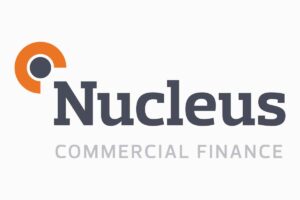
Nucleus Commercial Finance is a UK-based alternative finance provider, offering a broad spectrum of business funding solutions to SMEs. Known for its innovative approach, Nucleus combines technology with traditional lending to offer products like asset finance, invoice finance, and business loans, tailored to support business growth and cash flow management.
Types of business loan available
Business Loans: Flexible loans designed to meet the varied needs of SMEs, from expansion to cash flow support.
Asset Finance: Enables businesses to purchase or lease equipment and vehicles, spreading the cost over time to aid financial planning.
Invoice Finance: Provides immediate access to funds tied up in unpaid invoices, improving liquidity and working capital.
Property Finance: Tailored solutions for commercial property investments or refinancing, supporting property developers and investors.
Standout features
- A wide range of financing options catering to different business needs and sectors.
- Fast and transparent application process, with decisions based on a comprehensive understanding of each business.
- Competitive rates and flexible terms, designed to accommodate the financial cycles of SMEs.
- Access to a dedicated team of experts, offering advice and support throughout the financing journey.
Typical fees and interest rates
Rates and specific APR details are determined upon application, depending on your business’s financials.
Eligibility criteria
- Primarily serves UK-based SMEs across a variety of industries.
- Businesses must demonstrate a stable trading history and the ability to repay the finance.
- Specific requirements vary by product, such as minimum turnover for invoice finance or collateral for asset finance.
- Applicants must provide detailed business information and financial documentation as part of the application process.
Nucleus Commercial Finance stands out for its commitment to providing flexible, innovative funding solutions to SMEs. By leveraging technology and offering a personalised service, Nucleus supports businesses in achieving their growth objectives while managing their cash flow efficiently.
Further information
Read our Nucleus Commercial Finance review or visit the website.
Rangewell
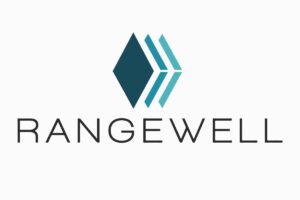
Rangewell is a UK-based business finance and funding portal that connects SMEs with a wide range of financial products across the market. Leveraging an extensive network of lenders, Rangewell helps businesses find the most suitable financing options, including loans, asset finance, and invoice finance, to support growth and operational needs.
Types of business loan available
Rangewell is a business finance broker that connects UK companies with over 300 lenders, offering access to over 20,000 financial products without charging fees for their services.
They can assist businesses in finding a wide range of loans, including fast business loans, small business loans, start-up funding, and more, with services tailored to various industries.
Standout features
- A comprehensive comparison service that scans the entire market to find the most competitive finance options.
- Expert advisors who provide personalised guidance, helping businesses navigate the complexities of business financing.
- A technology-driven platform that simplifies the application process, making it easier for businesses to access funding.
- Strong relationships with a wide range of lenders, from high street banks to niche finance providers.
Typical fees and interest rates
As a broker, Rangewell’s service to businesses is often free, with fees typically being earned from lenders once finance is arranged. Interest rates and fees for the financial products available through Rangewell vary depending on the lender, the type of finance, and the creditworthiness of the business. Rangewell’s advisors work to ensure businesses understand all associated costs before proceeding.
Eligibility criteria
- UK-based businesses across a broad spectrum of industries can access Rangewell’s services.
- Eligibility for specific financial products depends on factors such as the business’s credit history, financial performance, and the amount of funding required.
- Rangewell’s team assesses each business’s unique situation to match them with suitable lenders and products.
Rangewell stands out as a finance facilitator by offering a wide-ranging, market-wide comparison service, tailored advice, and an easy-to-use platform. This approach ensures that SMEs can find and secure the best possible financing solutions to meet their specific needs, supporting their growth and success in the competitive UK business landscape.
Further information
Read our Rangewell review or visit the website.
RebuildingSociety.com

RebuildingSociety.com is a UK-based peer-to-peer lending platform that fosters direct lending between investors and SMEs. By bypassing traditional banking intermediaries, it offers businesses a unique avenue for securing loans, while providing investors with the opportunity to earn competitive returns by funding the growth of British businesses.
Types of business loan available
Unsecured Business Loans: Tailored for SMEs looking for flexible, short to medium-term financing options without the requirement of collateral.
Standout features
- Facilitates a direct connection between businesses seeking funding and individual investors, promoting community-based financial support.
- Competitive interest rates for businesses, derived from an auction-based lending process where investors bid to lend money.
- Flexible loan terms and repayment options, designed to suit the varied needs of SMEs.
- Transparent fee structure for both borrowers and lenders, ensuring clarity and fairness in all transactions.
Typical fees and interest rates
Rebuildingsociety.com offers peer-to-peer business loans starting from £25,000, with interest rates beginning at 5%.
They charge a fixed fee of 5% plus VAT on loans, which can be used for various purposes such as renovations, purchasing new equipment, or debt consolidation.
Monthly repayments are fixed, and there’s no penalty for early repayment.
Eligibility criteria
- Primarily targets UK-based SMEs across diverse sectors.
- Businesses should have a minimum trading history, usually two years, to demonstrate stability and revenue generation.
- Requires a solid financial record and the capability to meet repayment commitments.
- The application process involves a thorough assessment of the business’s financial health, including a review of accounts and credit history.
RebuildingSociety.com distinguishes itself with its community-driven approach to business financing, connecting SMEs with a network of individual investors keen on supporting UK business growth. This platform not only facilitates access to finance for businesses but also offers investors a chance to contribute to the economic development of their community, all while seeking a return on their investment.
Further information
Read our RebuildingSociety.com review or visit the website.
Royal Bank of Scotland
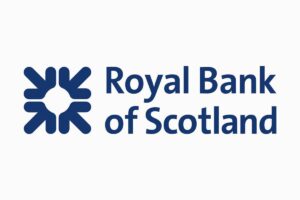
The Royal Bank of Scotland (RBS) is a significant player in the UK’s banking sector, offering a wide array of financial services. It provides comprehensive support for businesses of all sizes, with products including business loans, overdrafts, asset finance, and commercial mortgages, aimed at fostering growth and operational efficiency.
Types of business loan available
RBS provides options from £1,000 up to £50,000 with a fixed interest rate for terms up to seven years. Larger loans and various financing options are also available, tailored to the specific needs of businesses.
Fixed Rate Loans: Offer predictable repayment plans, helping businesses to budget effectively.
Variable Rate Loans: Flexibility with repayments that adjust with market rates, suitable for businesses with variable cash flow.
Asset Finance: Enables the purchase of equipment or vehicles, aiding in business expansion without upfront costs.
Commercial Mortgages: Financing options for purchasing or refinancing business premises, tailored to match long-term financial strategies.
Standout features
- A broad portfolio of financial products designed to meet the diverse needs of the UK’s business landscape.
- Dedicated relationship managers provide support and expert advice, ensuring businesses receive the right financial solutions.
- Advanced digital banking tools for efficient account management and transaction processing.
- A commitment to supporting business growth and sustainability through various financing options.
Eligibility criteria
- Aimed at UK-based businesses, from startups to large corporations.
- Businesses must demonstrate a solid financial history and the ability to meet repayment obligations.
- Specific products, like asset finance and commercial mortgages, may require collateral.
- Application process involves providing detailed financial information, including business plans and financial statements.
The Royal Bank of Scotland is a trusted partner for UK businesses, offering a range of financial products and services designed to support growth, manage cash flow, and improve operational efficiency. With its commitment to personalised service and innovation, RBS helps businesses navigate their financial journeys successfully.
Further information
Read our RBS review or visit the website.
Santander
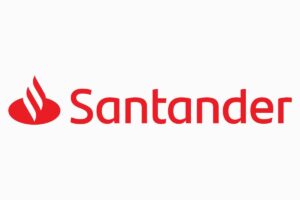
Santander UK is a prominent banking institution offering a comprehensive suite of financial services. It caters to personal, business, and corporate clients, providing business loans, overdrafts, asset finance, and commercial mortgages. Santander is dedicated to helping businesses grow, manage cash flow, and achieve their strategic objectives with tailored financial solutions.
Types of business loan available
Fixed Rate Loans: Enables businesses to budget effectively with predictable monthly repayments.
Variable Rate Loans: Offers flexibility, with repayments that vary based on market interest rates.
Asset Finance: Assists businesses in acquiring equipment or vehicles, facilitating growth without large initial expenditures.
Commercial Mortgages: Provides funding for purchasing or refinancing commercial properties, tailored to suit business needs.
Standout features
- A wide array of financial products designed to support businesses at every stage of growth.
- Global banking expertise with a strong local presence, offering access to international markets and financial insights.
- Advanced online and mobile banking services for convenient account management and transactions.
- Commitment to sustainability and responsible banking, aligning financial solutions with ethical practices.
Typical fees and interest rates
Santander UK offers business loans from £2,000 to £25,000 with a representative APR of 7.9%, including a 12-month interest-free period and fixed monthly repayments without arrangement fees.
Eligibility criteria
- Targeted at UK-based businesses, from small startups to large enterprises.
- A solid financial history and the capability to meet repayment commitments are required.
- Collateral may be necessary for certain types of loans, such as asset finance and commercial mortgages.
- Comprehensive financial documentation, including business plans and financial statements, is typically required during the application process.
Santander UK stands out for its global reach, extensive range of services, and commitment to responsible banking. By offering tailored financial solutions and leveraging its international expertise, Santander supports UK businesses in navigating their financial journeys and achieving long-term success.
Further information
Read our Santander review or visit the website.
Satellite Finance
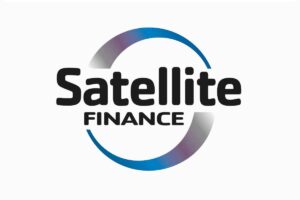
Satellite Finance is a UK-based financial brokerage firm, specialising in providing bespoke funding solutions to businesses across various sectors. It offers a comprehensive suite of financial products, including asset finance, commercial mortgages, and invoice financing, designed to support business growth, enhance cash flow, and facilitate investment in infrastructure and equipment.
Types of business loan available
They focus on offering a dedicated, personal service, particularly to businesses seeking commercial loans, corporate tax and VAT loans, and professional loans. Their services include commercial loans up to £1,000,000, asset finance, and invoice finance.
Asset Finance: Helps businesses acquire essential equipment or vehicles without incurring the full cost upfront, spreading payments over time.
Commercial Mortgages: Financing options for purchasing or refinancing business properties, tailored to individual business needs and repayment capabilities.
Invoice Finance: Enables businesses to unlock the value of outstanding invoices, providing immediate working capital to improve cash flow.
Standout features
- A wide range of financing options catering to the diverse needs of UK businesses.
- Personalised service with a team of experienced financial advisors offering tailored advice and support.
- Strong partnerships with a network of lenders, ensuring competitive rates and flexible terms for clients.
- Quick and efficient application and approval process, facilitating faster access to funds.
Eligibility criteria
- Primarily serves UK-based businesses across a variety of industries.
- Businesses must demonstrate a stable financial history and the ability to meet repayment obligations.
- Specific requirements may vary depending on the type of finance sought; for example, asset finance typically requires the asset as collateral.
- Detailed financial documentation and business plans may be required as part of the application process.
Satellite Finance stands out for its customer-focused approach, offering tailored financial solutions to meet the unique needs of each business. By leveraging its extensive network of lenders and focusing on efficient service delivery, Satellite Finance supports UK businesses in achieving their financial goals and driving growth.
Further information
Read our Satellite Finance review or visit the website.
Starling Bank
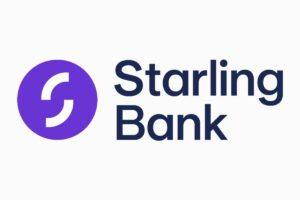
Starling Bank, a leading UK digital bank, offers innovative financial services designed for the modern consumer and business. With a strong focus on technology and customer experience, Starling provides a range of products including business accounts, loans, and overdrafts, all accessible through an intuitive mobile app, supporting SMEs with flexible banking solutions.
Types of business loan available
Starling Bank offers business loans ranging from £25,001 to £250,000 for Limited Liability Companies and Limited Liability Partnerships.
Unsecured Business Loans: Quick access to funds for SMEs without the need for collateral, ideal for short-term financial needs or business growth initiatives.
Overdrafts: Flexible credit facilities that provide businesses with immediate access to additional funds as needed, helping to manage cash flow effectively.
Standout features
- Award-winning mobile banking app, offering real-time insights into business finances, payments, and account management.
- Transparent pricing with no hidden fees, providing clear, straightforward banking solutions.
- Strong emphasis on security and customer support, available 24/7 through the app, phone, or email.
- Sustainability initiatives, including eco-friendly debit cards and support for green business practices.
Typical fees and interest rates
These loans come with a fixed interest rate, ensuring consistent repayment amounts, and a one-off arrangement fee of 4% at drawdown. There are no charges for early repayments, and terms can extend from 12 to 72 months.
Eligibility criteria
- Available to UK-registered businesses, with a focus on small and medium-sized enterprises.
- A personal guarantee is required as security.
- Non-customers can apply but must open a Starling account.
- Businesses must operate primarily in the UK and have owners who are UK residents.
- A solid financial history and credit score may be required to qualify for loans and overdrafts.
- Application is streamlined through Starling’s mobile app or website, requiring basic business information and financial documentation.
Starling Bank is at the forefront of the fintech revolution, providing SMEs with accessible, user-friendly banking solutions. Its digital-first approach, combined with a commitment to transparency and customer service, makes Starling an attractive option for businesses looking for modern financial services to support their growth and operational needs.
Further information
Read our Starling review or visit the website.
Start Up Loans

Start Up Loans is a UK government-backed scheme providing fixed-interest financing to new businesses and entrepreneurs. It’s designed to support the launch and growth of startups, offering not just financial assistance but also valuable mentoring and support services to help new business owners navigate the early stages of business development.
Types of business loan available
Fixed-Interest Unsecured Loans: Tailored specifically for individuals looking to start or grow a business in the UK, these loans are unsecured, meaning they don’t require any collateral.
Standout features
- Fixed interest rate at 6% per annum, ensuring predictable repayment amounts.
- Access to free business mentoring for 12 months, providing invaluable guidance to new entrepreneurs.
- Support includes business planning and cash flow forecasting, helping applicants to strengthen their business case.
- Loan amounts can be up to £25,000 per individual, with a maximum of £100,000 available per business partnership.
Typical fees and interest rates
The scheme offers a fixed interest rate of 6% per annum, making financial planning straightforward for loan recipients. There are no application fees or early repayment fees, emphasising the program’s aim to support rather than profit from new businesses.
Eligibility criteria
- Open to UK residents aged 18 or over who are starting a new business or have been trading for up to 36 months.
- The business must be based in the UK and not yet fully established or trading for more than 36 months.
- Applicants must pass a credit check and demonstrate that they cannot secure finance from other sources.
- A solid business plan and cash flow forecast are required as part of the application process.
Start Up Loans offers a unique blend of financial support and expert mentoring to UK entrepreneurs, aiming to foster successful business launches and growth. This government-backed scheme is an invaluable resource for individuals seeking to turn their business ideas into reality, providing a strong foundation for new ventures.
Further information
Read our Start Up Loans review or visit the website.
ThinCats

ThinCats is a leading UK-based alternative finance provider specialising in mid-sized SMEs. It offers bespoke funding solutions, including secured loans and working capital finance, aiming to fill the gap left by traditional banks. ThinCats connects institutional and retail investors with businesses needing finance to grow, innovate, and succeed.
Types of business loan available
ThinCats specialises in providing business loans to established, medium-sized SMEs, with amounts ranging from £1,000,000 to £15,000,000. These loans must be secured against an asset and are sourced from third-party investors.
Secured Business Loans: Tailored loans secured against the company’s assets, offering substantial funding for growth, acquisition, or refinancing purposes.
Working Capital Finance: Provides businesses with the necessary funds to manage day-to-day operations, supporting cash flow and operational efficiency.
Standout features
- Focus on mid-sized SMEs with bespoke, structured finance solutions.
- Direct access to decision-makers and a personalised approach to lending.
- A pioneering data-driven approach for risk assessment, ensuring fair and competitive financing terms.
- Strong track record of supporting UK businesses across a range of sectors with significant loan sizes.
Typical fees and interest rates
Interest rates and fees are tailored to each business’s circumstances, including the loan amount, term, and risk profile. ThinCats is committed to transparency, with all costs clearly communicated to clients upfront, ensuring businesses understand their financial commitments.
Eligibility criteria
- Targeted at mid-sized SMEs with a clear business plan and growth potential.
- Businesses must be UK-based and typically have a minimum annual turnover threshold, though this can vary depending on the loan product.
- A solid trading history and financial performance demonstrating the ability to meet loan repayments.
- Loans are secured, requiring the business to have tangible assets for collateral.
ThinCats stands out for its innovative approach to lending, providing mid-sized SMEs with access to funding that may not be available through traditional banking channels. Its focus on tailored solutions, along with a commitment to supporting business growth and development, makes ThinCats a valuable partner for UK businesses looking to scale and evolve.
Further information
Read our ThinCats review or visit the website.
White Oak

White Oak is a leading non-bank financial institution in the UK, offering a suite of flexible financing solutions to businesses across various sectors. With a focus on customer service and quick decision-making, White Oak provides loans, asset finance, and invoice finance to help businesses manage cash flow and drive growth.
Types of business loan available
They have a minimum borrowing requirement of £25,000 and cater mainly to larger businesses that have been trading for at least three years.
Business Loans: Unsecured and secured loans tailored to meet specific business needs, from expansion to equipment purchase.
Asset Finance: Allows businesses to purchase or lease equipment and vehicles, spreading the cost over time to ease cash flow.
Invoice Finance: Offers immediate access to funds tied up in unpaid invoices, enhancing working capital and liquidity.
Standout features
- Rapid funding decisions, with the ability to deliver funds quickly, often within 24 hours of approval.
- A customer-centric approach, offering personalised service and tailored financial solutions.
- Competitive rates and transparent fee structures, ensuring businesses have a clear understanding of their financial commitments.
- A broad eligibility criterion, catering to a wide range of businesses and industries.
Eligibility criteria
- UK-based businesses across a variety of sectors are eligible.
- A solid trading history and financial performance indicating the ability to meet repayment obligations.
- For asset finance, the asset being financed often serves as collateral.
- Application processes are streamlined, requiring minimal paperwork and providing quick access to funding.
White Oak stands out for its rapid funding processes and commitment to supporting UK businesses with flexible financial solutions. By focusing on ease of access to finance and customer service, White Oak helps businesses across the UK to seize opportunities, manage cash flow, and achieve sustainable growth.
Further information
Read our White Oak review or visit the website.
What are business loans?
Business loans are a type of financing offered by banks and other lenders that can help businesses meet their financial goals. Loans allow companies to borrow money to cover expenses like new equipment, expansion projects, or inventory. The borrowed funds must be repaid with interest over an agreed-upon period of time, typically ranging from one to five years.
Secured versus unsecured business loans
Business loans can be either secured or unsecured:
- Secured business loans require collateral, such as a company’s assets, to guarantee the loan amount.
- Unsecured business loans do not require collateral, and are usually more difficult to obtain. Interest rates for secured business loans tend to be lower than those for unsecured business loans.
How do business loans work?
When a business applies for a loan, the lender will review their credit score and financials to determine eligibility.
If approved, the borrower will be provided with loan terms, including how much money is being borrowed, the interest rate, repayment period, and any additional fees or charges associated with the loan.
The borrower must agree to these terms before accepting the loan. Once the loan is accepted, the borrower will make regular payments to the lender until the full amount of the loan (plus any applicable interest and fees) is repaid.
Business loans can provide an important source of funding for limited companies looking to expand or invest in their operations. However, business loans should only be taken out when absolutely necessary.
Why are bank loans good for a business?
Bank loans are a great option for businesses looking to finance new projects, purchase equipment or expand operations. Bank loans typically offer competitive interest rates and repayment terms that can be tailored to the business’s specific needs.
Additionally, bank loans can provide businesses with much-needed capital that would otherwise be difficult or impossible to obtain.
What can business loans be used for?
Business loans can be used for a variety of purposes, including purchasing equipment or inventory, financing expansion projects, and covering operational costs. Businesses may also use loans to refinance existing debt or consolidate multiple debts into one loan with a lower interest rate.
Which UK banks offer business loans?
Most major banks offer business loans to qualified borrowers. These include Santander, NatWest, HSBC, Barclays, Lloyds Banking Group and the Co-Operative Bank.
In addition to banks, there are a number of other financial institutions that offer loans in the UK including invoice factoring companies and peer-to-peer lenders.
Loan approval criteria
When applying for a business loan, lenders will consider several factors to determine the applicant’s eligibility. These include the company’s credit score, financial history, and cash flow. The lender may also look at matters such as the company’s industry, size, amount of debt already held, and prospects for growth. Some lenders might also require a personal guarantee from the business owner.
What are the best UK small business loans?
When it comes to finding the best UK small business loan, there are a few key factors to consider. Firstly, you should determine what kind of loan you require – such as an unsecured or secured loan. Secondly, you need to think about the time-frame and affordability of your loan – whether you need a fast loan, short-term or long-term loan, and how much you are able to afford in terms of monthly repayments.
When deciding which UK small business loan is best for your needs, it’s important to research all available options carefully. Different lenders offer different terms and conditions, so be sure to read the fine print before signing on the dotted line.
How to get small business loans?
Small businesses may have difficulty obtaining traditional business loans due to the higher risks associated with smaller companies. Fortunately, there are now a range of alternative sources of funding available to small businesses. These include online lenders, peer-to-peer lenders, and invoice financing programs.
Applying for an alternative loan may be easier than obtaining a traditional bank loan as the approval process is usually much faster. When applying for any type of loan, it is important to read all the terms and conditions carefully before signing any agreement.
Business loans FAQ
Businesses typically need to provide a variety of documents to apply for a business loan. These may include proof of identity, tax returns, financial statements and other information related to the business’s operations. The specific documents required will vary depending on the lender and type of loan applied for.
Entrepreneurs can use loans to start a new venture. To qualify for a loan, entrepreneurs must typically demonstrate that their idea is viable and that they have the necessary funds and resources to launch the business. The same criteria used for assessing existing businesses are also applicable when evaluating new companies.
In addition to providing evidence of financial stability and a solid business plan, entrepreneurs may also need to provide collateral or a personal guarantee to secure the loan. It is important for entrepreneurs to research the different types of loans available before applying.
Loans can help businesses meet their goals and grow, but it is important to proceed carefully and research all available options before committing to any agreement.
Businesses with bad credit can still obtain a loan, although the interest rates and repayment terms are likely to be more expensive than for businesses with good credit.
Alternative lenders such as online lenders or peer-to-peer lenders may be willing to provide loans to businesses with bad credit. In some cases, borrowers may need to provide collateral or a personal guarantee to secure the loan.
Business owners should also look into other forms of financing, such as grants and lines of credit, which may be easier to obtain than a traditional business loan. Regardless of the type of funding sought, it is important for businesses to have a solid business plan and financials in order to demonstrate their ability to keep up with repayments.
In order to qualify for a loan, businesses must demonstrate their financial stability and ability to repay the loan. Most lenders will review the company’s credit score and financial history when assessing an application. They may also require evidence of cash flow, profitability, and sound management practices.
Businesses should ensure that all their paperwork is in order and that they can present a clear business plan. It is also important to be aware of any hidden fees or charges associated with the loan. By doing thorough research, businesses can ensure they get the best deal possible.
The amount of a loan depends on the size and nature of the business. Generally, lenders will assess the company’s cash flow, credit score and financial history to calculate how much they can lend.
The length of a business loan depends on the lender and the type of loan. Business loans may range from as little as three months to five years or more.
Business loan interest rates vary depending on the size and nature of the business, as well as the lender’s assessment criteria. Generally, the interest rate is determined by combining a number of factors such as the size of the loan, repayment terms and credit score.

